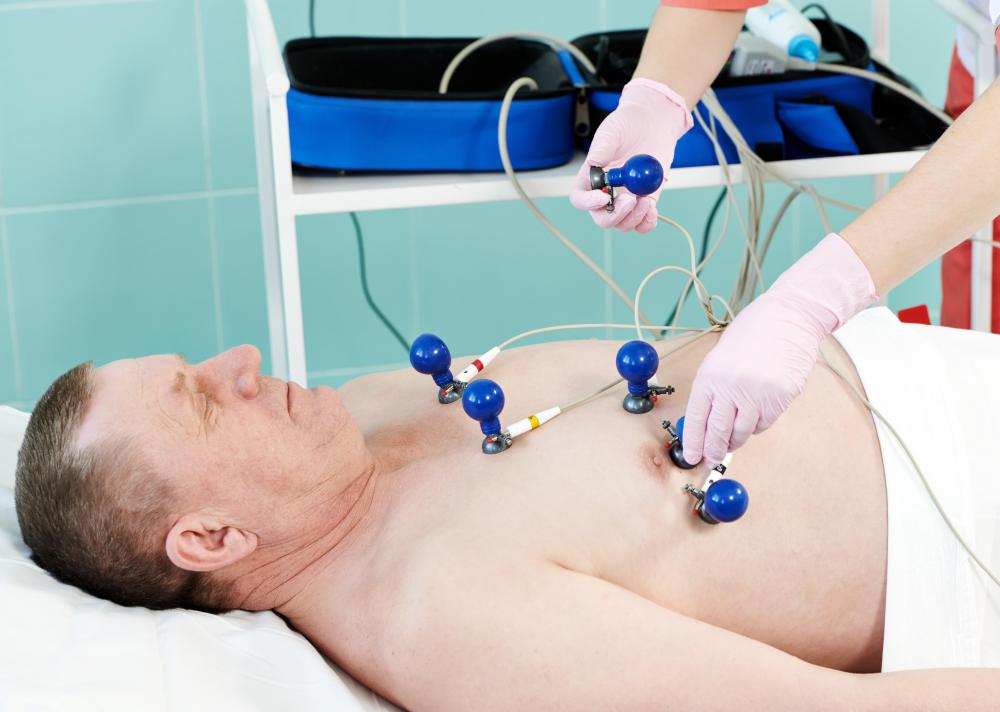At TheHealthBoard, we're committed to delivering accurate, trustworthy information. Our expert-authored content is rigorously fact-checked and sourced from credible authorities. Discover how we uphold the highest standards in providing you with reliable knowledge.
What Happens after Ablation?
An ablation is a procedure during which offending tissue is identified and destroyed. While ablations can be performed on various areas of the body, the most common ablation site is the heart. Catheter ablations are used to correct several heart rate issues, including supraventricular tachycardia and atrial fibrillation. Following ablation, steps are taken to protect the entry site. The patient is given instructions as to when he or she can expect to return to normal activity levels.
Cardiac ablations are performed by entering the main artery of the leg, arm, or neck. Catheter lines are fed slowly through the artery until they reach the targeted site. At this point, the heart rate issue is triggered and the tissue triggering misfiring electrical impulses is destroyed.

The patient is required to lie still for between four and six hours after ablation. During this time, pressure is applied to the entry site to stop bleeding and begin the artery healing process. Bruising is expected and can be extensive. Heart monitoring is conducted throughout the four to six hours after ablation.
Patients report feeling tired for a few days after ablation. In addition, chest pains are common and expected. For up to three months after ablation, patients often experience palpitations, skipped heart beats, and symptoms of atrial fibrillation, or abnormal heart rhythm. These should eliminate themselves in about 90 days.

The cardiologist typically prescribes blood-thinning medications after ablation. These medications prevent blood clots from forming. The patient should expect to take such medications for three to six months after having an ablation performed. Specific testing is done at that time to determine whether blood thinners should be continued or stopped.
Endometrial ablation is another type of ablation. Used to destroy the lining of the uterus, it is typically done to reduce menstrual blood flow. It is an outpatient medical procedure. Following the ablation, the patient may experience cramping, watery or blood-tinged vaginal discharge, and nausea. Recovery takes approximately two weeks.

Common instructions given to ablation patients, regardless of the ablation site, include not lifting anything over a few pounds and avoiding baths until cleared by the physician. In addition, follow-up appointments should be kept. Ablations are commonly performed medical procedures with low risk. Patients should contact their physician if unusual or unexpected symptoms arise after their ablations.
AS FEATURED ON:
AS FEATURED ON:


















Discuss this Article
Post your comments